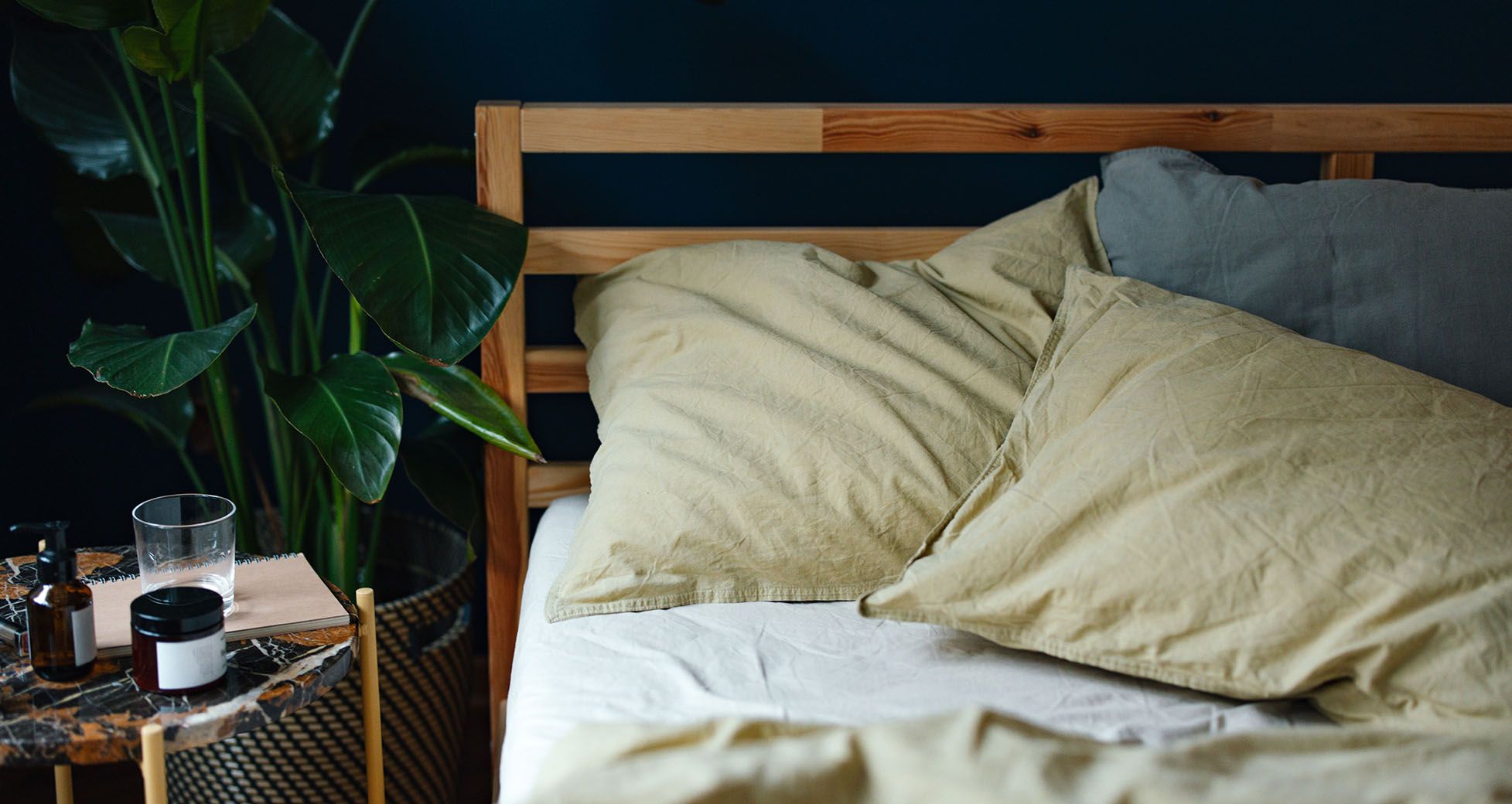Rest Easy
Consistency is Key
Stick to a sleep schedule with a consistent bedtime and wake-up time. This makes for better quality sleep and helps you feel well-rested and rejuvenated in the morning. Aim for six to eight hours of sleep per night.
Make Time for Downtime
Our bodies and minds like routine and it helps separate the day from the night. Create a wind-down routine that signals to your body that sleep is coming. Plan for 30-60 minutes of pre-sleep time every evening for things like personal care, reading and calming hobbies.
Establish a Sleep Sanctuary
Create an optimal environment for sleep in your bedroom: dark, quiet and cool. To break the silence or drown out unwanted noise, use a fan or white noise machine. Limit screen time before bed and try charging your phone outside your bedroom.
Be Mindful of Meals
Limit eating too close to bedtime and avoid caffeine, nicotine and alcohol. Opt instead for calming beverages like herbal tea and foods high in melatonin such as tart cherries, walnuts and olives.

10 Reasons for a Good Night's Sleep
Written by: Manoj Waikar, MD
We have so many demands on our time that we often sacrifice sleep to fit everything in. But studies show getting quality sleep on a regular basis can benefit your heart, weight, mind and more. It's vital to your well-being. Plus, all your hard work eating healthy and exercising can be undermined if you aren't getting enough sleep. Watch this video to learn more sleep facts.
#1 All Sleep Is Not the Same
Brain wave patterns show four different "stages" of sleep. A healthy sleeper moves from stages of light sleep to heavy sleep to dream sleep (rapid eye movement; REM) in cycles that last about 90 minutes.
#2 Focus on Quality Sleep
Deep sleep cleans your brain of pesky chemicals called somnogens that make you feel tired. Unfortunately, many things can diminish or even eliminate deep sleep: anxiety, depression, chronic pain, alcohol, certain medications and even just age itself. Do what you can to keep your deep sleep.
#3 Skip the Blue Light Special
In today's device-dominated world any conversation about sleep hygiene must address the impact of screens. Our brains are wired to initiate sleep when blue light fades from the sky. Use night mode or filtering apps for phones at least an hour before bedtime.
#4 A Nightcap Can Be a Nightmare
Sleep and alcohol don't mix. The "sleep" you get while alcohol is in your system is not restorative sleep. I tell my patients who drink to try to have no alcohol in their system for at least one hour before sleeping.
#5 Shiver Your Way to Good Sleep
I know the thermostat can be a point of contention, but in the bedroom there's some evidence to consider. People tend to sleep better when the ambient temperature is lower. Give it a try. The cooler, the better.
#6 Don't Miss Out on Your Dreams
Normally our sleep cycles show more deep sleep early in the night and more REM sleep toward morning. Deep sleep restores the body while REM sleep recharges the mind. Waking up too early day after day leaves you less sharp mentally with fewer dreams.
#7 True or False?
Adults need less sleep as they age. FALSE.
Adults' sleep requirements don't really change. But sleep efficiency declines with age. Adults get 30 minutes less sleep per night per decade after age 30. So as we age we should actually spend more time to get the same amount of sleep.
#8 Sleep Your Weight Down
When you don't get enough high-quality sleep the appetite-stimulating hormone ghrelin increases and the appetite curbing hormone leptin decreases. Sleep deprivation can also increase cortisol levels, which can hamper your efforts to lose abdominal fat.
#9 When In Doubt, Check It Out
Sleep dysfunction is finally being recognized as a major obstacle to wellness. Many common sleep issues can be addressed easily. Don't let poor sleep undermine your weight loss or wellness goals. Sleep well to live well.
#10 Sawing Logs?
Snoring is not normal. All too often snoring is associated with conditions like sleep apnea that prevent healthy sleep. Additional factors that can interfere with proper air movement while you sleep include congestion from alcohol, allergies, smoking and air temperature.

Join Healthier Habits
Healthier Habits is our free health and wellness community. By joining, you’ll unlock tools to support a healthier lifestyle, including delicious Dietitian Pick recipes and exclusive discounts on Dietitian Pick items.
